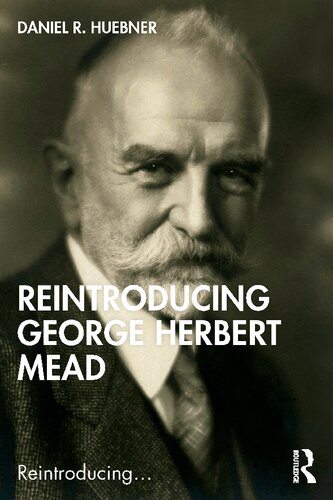

Most ebook files are in PDF format, so you can easily read them using various software such as Foxit Reader or directly on the Google Chrome browser.
Some ebook files are released by publishers in other formats such as .awz, .mobi, .epub, .fb2, etc. You may need to install specific software to read these formats on mobile/PC, such as Calibre.
Please read the tutorial at this link: https://ebookbell.com/faq
We offer FREE conversion to the popular formats you request; however, this may take some time. Therefore, right after payment, please email us, and we will try to provide the service as quickly as possible.
For some exceptional file formats or broken links (if any), please refrain from opening any disputes. Instead, email us first, and we will try to assist within a maximum of 6 hours.
EbookBell Team

4.7
46 reviewsGeorge Herbert Mead has long been known for his social theory of meaning and the ‘self’ - an approach which becomes all the more relevant in light of the ways we develop and represent ourselves online. But recent scholarship has shown that Mead’s pragmatic philosophy can help us understand a much wider range of contemporary issues including how humans and natural environments mutually influence one another, how deliberative democracy can and should work, how thinking is dependent upon the body and on others, and how social changes in the present affect our understandings of the past. Historical scholarship has also changed what we know of Mead’s life, including new emphasis on his social reform efforts, his engagement with colonization and war, and critical reinterpretation of the works published after his death. This book provides an approachable introduction to Mead’s contemporary relevance in the social sciences, showing how a pragmatic view of social action serves as the core of Mead’s theory, offering striking insights into human agency, symbolism, politics, social change, temporality, and materiality. As such, it will appeal to scholars of sociology and the social sciences more broadly, with interests in social theory and the enduring importance of the sociological classics.